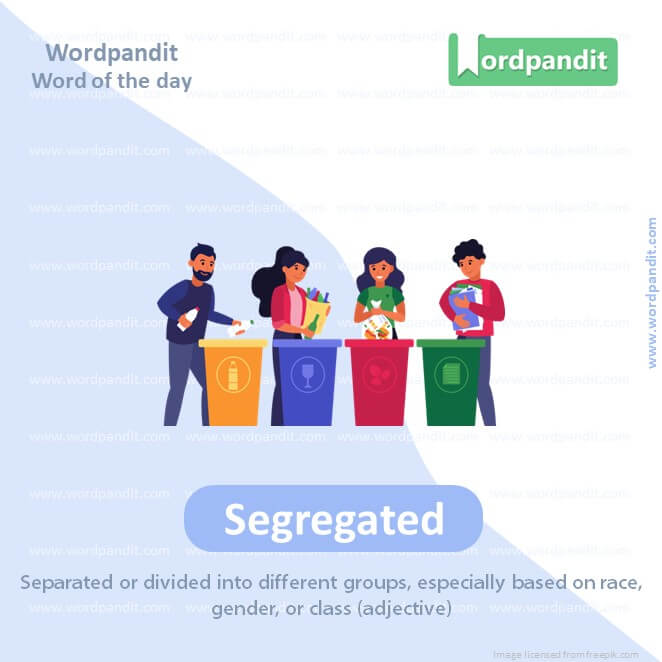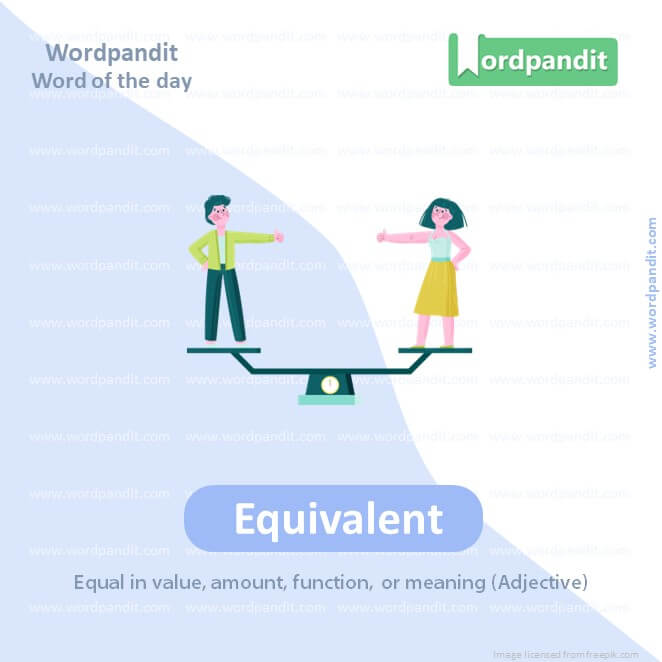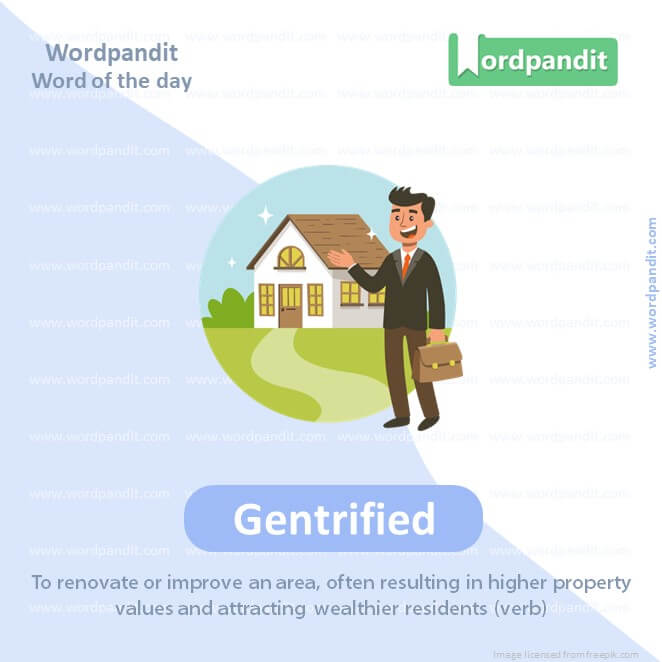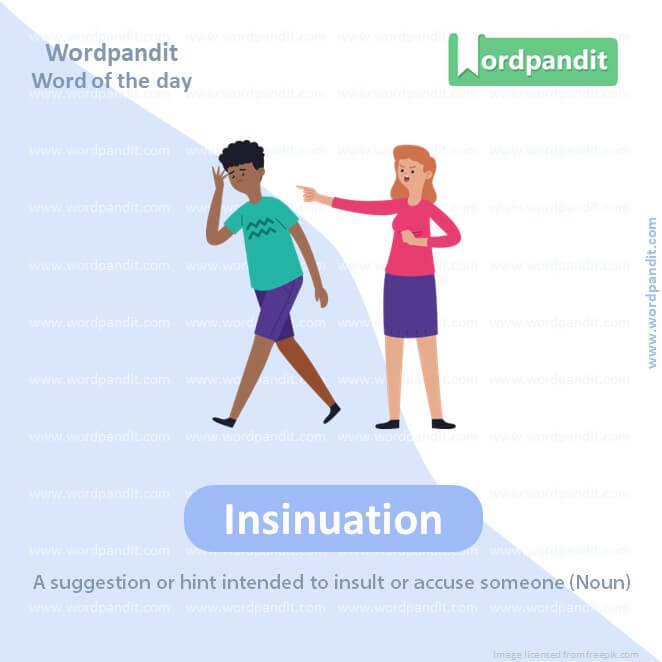Daily Vocabulary Words: List of Daily Used Words in Leading International Newspapers
Hi there. Welcome to this special section @ Wordpandit.
Our endeavour here is very simple: to highlight important daily vocabulary words, which you would come across in leading newspapers in the country. We have included the following newspapers in our selection:
• The New York Times
• The Washington Post
• Scientific American
• BBC
• The Guardian
• Psychology Today
• Wall Street Journal
• The Economist
We are putting in extensive work for developing your vocabulary. All you have got to do is be regular with this section and check out this post on a daily basis. This is your repository of words that are commonly used and essentially, we are posting a list of daily used words. Hence, this has significant practical application as it teaches you words that are used commonly in leading publications mentioned above.
Visit the website daily to learn words from leading international newspapers.

WORD-1: Spurious
CONTEXT: Others, in which users “break down” aspects of the video and analyse the saga with spurious evidence, also rack up millions of views and shares.
SOURCE: The Guardian
EXPLANATORY PARAGRAPH: Imagine you have a box of crayons, but one of them looks like a crayon on the outside, but when you try to color with it, it doesn’t work like the others. That crayon is “spurious.” It means something that looks real but is actually fake or not genuine.
MEANING: Not genuine or authentic; fake (adjective).
PRONUNCIATION: SPYOO-ree-us
SYNONYMS: Fake, false, bogus, counterfeit, fraudulent
USAGE EXAMPLES:
1. The salesman tried to sell me a spurious watch, claiming it was a luxury brand.
2. Be careful with online shopping; sometimes, websites sell spurious products.
3. The spurious painting fooled many art collectors until it was revealed as a forgery.
4. His spurious excuses for not completing the project were easily exposed.

WORD-2: Segregated
CONTEXT: It is both a huge and subtle shift. Until recently, types of content were segregated by platform.
SOURCE: The Guardian
EXPLANATORY PARAGRAPH: Think about a box of toys where all the dolls are kept in one corner, the cars in another, and the blocks in yet another corner. When things are separated or kept apart like this, it’s called “segregated.” It means things are divided into different groups and not mixed together.
MEANING: Separated or divided into different groups, especially based on race, gender, or class (adjective).
PRONUNCIATION: SEG-ri-gey-tid
SYNONYMS: Separated, divided, isolated, divided, split
USAGE EXAMPLES:
1. In the past, schools were often segregated based on the students’ skin color.
2. The playground had separate areas for younger and older children, so they were segregated.
3. The community worked hard to ensure that everyone felt included and not segregated.
4. The cafeteria had segregated seating for students, with different tables for different grades.

WORD-3: Equivalent
CONTEXT: All social media apps now have the equivalent of a “For you” page, a feed of content from people you don’t follow, and which, if you don’t consciously adjust your settings, the homepage defaults to.
SOURCE: The Guardian
EXPLANATORY PARAGRAPH: If you have one toy car and your friend has one toy car, you both have the same number of cars, right? That’s called “equivalent.” It means having the same value or amount as something else.
MEANING: Equal in value, amount, function, or meaning (adjective).
PRONUNCIATION: ee-kwuh-vuh-luhnt
SYNONYMS: Equal, identical, alike, comparable, corresponding
USAGE EXAMPLES:
1. In math, 2 + 3 is equivalent to 5.
2. The teacher explained that one dollar is equivalent to 100 cents.
3. A teaspoon is equivalent to about five milliliters.
4. The two paintings were of equivalent beauty, making it hard to choose between them.
WORD-4: Consciously
CONTEXT: All social media apps now have the equivalent of a “For you” page, a feed of content from people you don’t follow, and which, if you don’t consciously adjust your settings, the homepage defaults to.
SOURCE: The Guardian
EXPLANATORY PARAGRAPH: When you know you’re doing something and you’re thinking about it before doing it, that’s doing it “consciously.” It means doing things on purpose and being aware of what you’re doing.
MEANING: Doing something intentionally or with awareness (adverb).
PRONUNCIATION: KAHN-shuh s-lee
SYNONYMS: Deliberately, intentionally, purposefully, awarely, knowingly
USAGE EXAMPLES:
1. She consciously chose to eat healthier food to improve her health.
2. He consciously avoided using his phone while driving.
3. The artist consciously selected colors that would evoke certain emotions in the viewers.
4. They consciously decided to recycle more to reduce waste.
WORD-5: Incentivises
CONTEXT: The result is a system that incentivises the creation of content that triggers high engagement, and there’s little that achieves that better than conspiracy theorising.
SOURCE: The Guardian
EXPLANATORY PARAGRAPH: Imagine you have a chore chart where you get a sticker every time you finish a task. Getting those stickers makes you want to do more chores, right? That’s because getting a reward encourages you to do something more. This encouraging or rewarding process is called “incentivises.”
MEANING: Encourages or motivates someone to do something by offering rewards or benefits (verb).
PRONUNCIATION: in-SEN-tuh-vahyz
SYNONYMS: Encourages, motivates, stimulates, promotes, inspires
USAGE EXAMPLES:
1. The company incentivizes its employees with bonuses for meeting targets.
2. Offering discounts often incentivizes customers to make more purchases.
3. The teacher incentivized good behavior in class with extra playtime.
4. Creating a reward system can incentivize children to do their homework regularly.

WORD-6: Gentrified
CONTEXT: And so the tone of conspiracy has become gentrified. People are now just “asking questions”, posting grainy videos and asking, “What do you notice?”, or threading, like those sober TikTok video creators, a series of observations and expressing concern that something is just not right.
SOURCE: The Guardian
EXPLANATORY PARAGRAPH: Imagine your neighborhood used to have old buildings, but now they’re all fancy and new. When an area changes like this and becomes more upscale or modern, it’s called “gentrified.” It means the neighborhood is becoming wealthier and attracting wealthier people.
MEANING: To renovate or improve an area, often resulting in higher property values and attracting wealthier residents (verb).
PRONUNCIATION: JEN-truh-fahyd
SYNONYMS: Renovated, upgraded, revitalized, modernized, transformed
USAGE EXAMPLES:
1. The old town was gentrified with new cafes and art galleries.
2. Gentrification often leads to increased rent prices in previously affordable neighborhoods.
3. The city’s waterfront area was gentrified, attracting tourists and new businesses.
4. Some residents opposed the gentrification of their neighborhood, fearing displacement.
WORD-7: Monetisation
CONTEXT: There is no simple formula, but monetisation now drives more content than you realise from a cursory scroll.
SOURCE: The Guardian
EXPLANATORY PARAGRAPH: Imagine you have a lemonade stand, and people give you money when they buy lemonade from you. That’s called “monetization.” It means turning something into money or making money from something.
MEANING: The process of earning revenue or making money from something (noun).
PRONUNCIATION: mon-uh-tuh-za-shun
SYNONYMS: Revenue generation, profit-making, commercialization, money-making, income generation
USAGE EXAMPLES:
1. The company’s monetization strategy involved selling ad space on its website.
2. Content creators on social media often rely on monetization through sponsorships.
3. The monetization of online gaming has become a significant industry.
4. The app developers explored various monetization models to generate income.
WORD-8: Cursory
CONTEXT: There is no simple formula, but monetisation now drives more content than you realise from a cursory scroll.
SOURCE: The Guardian
EXPLANATORY PARAGRAPH: Imagine quickly flipping through the pages of a book without reading all the words. When you look at something quickly and don’t pay much attention to details, it’s called “cursory.” It means doing something hastily or superficially.
MEANING: Done quickly and without attention to detail; superficial (adjective).
PRONUNCIATION: KUR-suh-ree
SYNONYMS: Hasty, superficial, brief, perfunctory, rapid
USAGE EXAMPLES:
1. She gave the report a cursory glance before the meeting.
2. The student’s cursory review of the textbook did not help with understanding the topic.
3. The chef’s cursory inspection of the ingredients led to a mistake in the recipe.
4. He only gave a cursory apology, without truly understanding the impact of his actions.

WORD-9: Insinuation
CONTEXT: (The headline appears to have been later changed to “Prince Harry dragged into …”) When parts of the press admonish social media users for speculating about the royals, the insinuation seems to be: that’s our job.
SOURCE: The Guardian
EXPLANATORY PARAGRAPH: Imagine you have a secret and you don’t want to say it directly, so you say something that hints at it. That hint or suggestion without saying it directly is called an “insinuation.” It means implying something without stating it outright.
MEANING: A suggestion or hint intended to insult or accuse someone (Noun)
PRONUNCIATION: in-sin-yoo-ey-shuhn
SYNONYMS: Innuendo, implication, suggestion, hint, inference
USAGE EXAMPLES:
1. Her insinuation about his honesty made him uncomfortable.
2. The politician’s speech was filled with insinuations about his opponent’s character.
3. I didn’t appreciate the insinuation that I was lying.
4. The detective picked up on the subtle insinuation in the suspect’s statement.
WORD-10: Cruder
CONTEXT: The family has been relegated to a cruder celebrity, with the added twist that we feel we are owed more by them than other famous people we do not pay for.
SOURCE: The Guardian
EXPLANATORY PARAGRAPH: Imagine drawing a picture with a thick marker instead of a fine-tip pen. The lines are not smooth and detailed; they’re rough and less refined. That’s called “cruder.” It means not as polished or refined, but more basic or rough.
MEANING: Lacking refinement or sophistication; basic or rough in quality (adjective).
PRONUNCIATION: KROO-der
SYNONYMS: Rough, unrefined, primitive, basic, unsophisticated
USAGE EXAMPLES:
1. The cruder version of the artwork was rejected by the gallery.
2. His cruder approach to problem-solving often led to simple but effective solutions.
3. The early prototypes were cruder compared to the final product.
4. The cruder language in the movie made it unsuitable for younger audiences.
Vocabulary list
In navigating the seas of language learning, a ‘vocabulary list’ can often be a dependable guiding star. These collections of words serve as a focused learning tool, yet the technique of mastering a ‘vocabulary list’ effectively requires more than simple perusal. It calls for a smart, sustained approach that amalgamates understanding, memory, and application.
Exploring a ‘vocabulary list’ should be more than a one-way trip. It ought to be more like a round trip, wherein you learn the words, come back to review them, and then set out again for a new voyage. This repeated interactive way of exploring the ‘vocabulary list’ aids in solid memory retention and effective learning.
Next, while dealing with a ‘vocabulary list’, employing memory-boosting techniques can bolster your retention substantially. Here, mechanisms like spaced repetition systems and flashcards can simplify and streamline the process. Moreover, associating words on your ‘vocabulary list’ with visual cues or personal stories can help your brain make strong connections, strengthening your recall ability.
However, the most crucial aspect of learning from a ‘vocabulary list’ is active application. Conquering a list without using the words in real-world contexts might leave you with fleeting knowledge. Hence, make it a point to integrate these learnt words into your daily interactions, be it on social media, in email exchanges, or casual conversations. The regular utilization reinforces your understanding and brings the ‘vocabulary list’ to life.
Conclusively, the ‘vocabulary list’ is a treasure trove in a language learner’s quest, waiting to be unlocked strategically. Through the trinity of review, memory-enhancing techniques, and active application, one can master any ‘vocabulary list’. So, take charge of your learning journey and set sail with your ‘vocabulary list’, charting the vast and fascinating seas of language.







